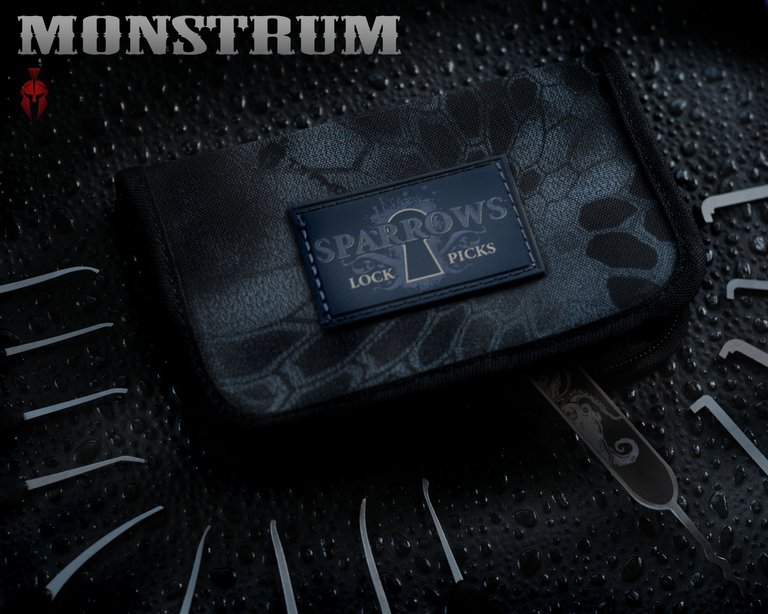Today I discovered . . . Padlock Porn
6 years ago in #todayidiscovered by cryptogee (75)
$15.71
- Past Payouts $15.71
- - Author $12.05
- - Curators $3.67
66 votes
- steemed-proxy: $12.86
- nanzo-scoop: $0.60
- cornerstone: $0.52
- sandra: $0.45
- t-bot: $0.35
- ericvancewalton: $0.20
- bleepcoin: $0.12
- celestal: $0.06
- atlantica: $0.05
- calaber24p: $0.05
- honeythief: $0.04
- voronoi: $0.04
- nanzo-snaps: $0.04
- evecab: $0.03
- blewitt: $0.03
- amirl: $0.03
- c0ff33a: $0.02
- calaberplays: $0.02
- dine77: $0.02
- quillfire: $0.02
- and 46 more
I have discovered that most padlock innards are really cheap.
Even masterlock doesn't have pins, just plates.
Easy to mass produce, easy to pick if you know what you are doing.
Fortunately, padlocks are just to keep honest neighbors honest.
...or maybe just to slow intruders down.
Definitely most padlocks that most people will buy. Having watched this guy's channel for a bit I can see that you have to spend an enormous amount (circa $200) before you even come close to getting a good padlock. Although that doesn't always guarantee you quality.
It's shocking how easy some are to pick though, he showed how a lock being used to secure police automatic weapons in vehicles could be picked in four different ways, each lasting less than two seconds!
Cg
Even worse is that all the police/community/fire equipment are all on the same key.
And not just across a town, usually across the entire industry.
There is one key that opens like 75% of everything.
Madness!
Cg
Speaking of shit, I took a dump in your wallet! Take a trip to the bathroom to claim your worthless SHIT!
I actually have one of those keys, and I also found someone willing to make a few custom copies.. Needless to say, if the shit seriously hits the fan one day, well... They’ll be incredibly handy. 😌
I just happen to be fascinated by this subject as well. Here are some free .pdfs on lock picking.
Practical Lock Picking:
http://www.rageuniversity.org/PRISONESCAPE/PRISON%20LOCKS%20AND%20KEYS/Practical.Lock.Picking.pdf
The Complete Lock Picking Guide:
https://cdn.shopify.com/s/files/1/0229/9819/files/ukbumpkeys-complete-lock-pick-guide-v1.6.pdf
Improvised Lockpicks:
https://static.webshopapp.com/shops/108892/files/078902441/improvised-lockpicks.pdf
Secrets of Lock Picking:
https://www.withoutakey.co.uk/content/pdf/secretsoflp.pdf
MIT Guide to Lock Picking:
https://www.withoutakey.co.uk/content/pdf/MITLockGuide.pdf
Enjoy!
Cool, thanks :-)
Cg
No problem ✌🏼
Be careful, it starts with a few of these videos. Next you are buying special edition picks and building your own locks with security pins. The skill comes in handy when a neighbor is locked out.
Haha, yes I can see it sucking me in! :-)
Cg
@cryptogee,
A couple of years ago, Katie and I did a bunch of experiments with Gallium. It is an ASTONISHING metal. To wit:
.
.
If you want to get kids interested in science, few things compare to the magic of Gallium.
BTW: The reason he scratches the aluminum padlock (under the drop of Gallium) is to remove the thin layer of aluminum oxide (aluminum rust) so as to allow the Gallium to react with the aluminum directly. Aluminum is viciously reactive with oxygen and forms aluminum oxide in a matter of milliseconds when exposed to air. Gallium prevents the formation of aluminum oxide.
Throw a small piece of the Gallium-Aluminum alloy in water and you will have an ENORMOUS release of hydrogen (as the aluminum strips the hydrogen atoms away from their oxygen atoms in the H20). The process is extremely exothermic (the water gets very hot).
The whole process in endlessly recyclable as you can recover all the Gallium and Aluminum and repeat the process over and over.
Quill
Cool! This was one of the videos suggested as I was watching all the other vids, but I was too caught up with all the others :-)
Thanks for the tip, I'll definitely have a go at that experiment with little one. She loves a good bit of fizzing and banging :-)
Cg